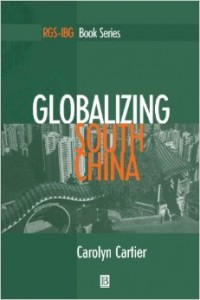- New Book
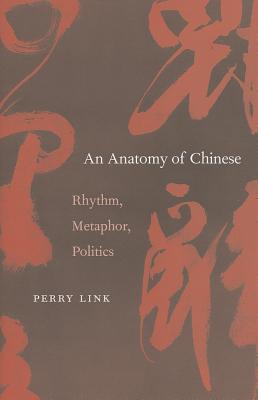 Link, E. P. (2013). An anatomy of Chinese: rhythm, metaphor, politics. Cambridge, Mass.: Harvard University Press.
Link, E. P. (2013). An anatomy of Chinese: rhythm, metaphor, politics. Cambridge, Mass.: Harvard University Press.
Perry Link’s inquiry into the workings of Chinese reveals convergences and divergences with English, most strikingly in the area of conceptual metaphor. Different spatial metaphors for consciousness, for instance, mean that English speakers wake up while speakers of Chinese wake across. Other underlying metaphors in the two languages are similar, lending support to theories that locate the origins of language in the brain. More…
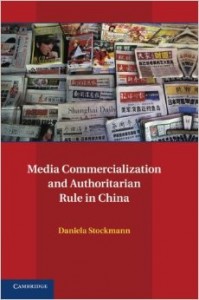 Stockmann, D. (2013). Media commercialization and authoritarian rule in China. New York, N.Y. : Cambridge University Press.
Stockmann, D. (2013). Media commercialization and authoritarian rule in China. New York, N.Y. : Cambridge University Press.
About the author: Stockmann is an Associate Professor at Leiden University. Her research interests include Chinese politics, comparative politics, political communication and public opinion, and research design. More…
- Economics
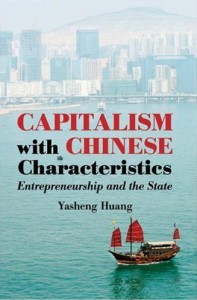 Huang, Y. (2008). Capitalism with Chinese characteristics: entrepreneurship and the state. Cambridge ; New York: Cambridge University Press.
Huang, Y. (2008). Capitalism with Chinese characteristics: entrepreneurship and the state. Cambridge ; New York: Cambridge University Press.
This book presents a story of two Chinas – an entrepreneurial rural China and a state-controlled urban China. In the 1980s, rural China gained the upper hand, and the result was rapid as well as broad-based growth. In the 1990s, urban China triumphed. In the 1990s, the Chinese state reversed many of its productive rural experiments, with long-lasting damage to the economy and society. Read more.
- Politics
 Vogel, E. F. (2011). Deng Xiaoping and the Transformation of China. Cambridge, Mass: Belknap Press of Harvard University Press.
Vogel, E. F. (2011). Deng Xiaoping and the Transformation of China. Cambridge, Mass: Belknap Press of Harvard University Press.
Ezra F. Vogel’s book provides much insight into the man responsible for arguably the greatest revolutionary change in Chinese history. Making use of Chinese-language biographies, official summaries of daily Party meetings, as well as interviews with children of many key players, Vogel presents a Deng best described by three adjectives: nationalistic, pragmatic, and authoritarian. More…
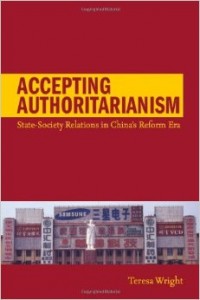 Wright, T. (2010.). Accepting authoritarianism : state-society relations in China’s reform era. Stanford, Calif. : Stanford University Press.
Wright, T. (2010.). Accepting authoritarianism : state-society relations in China’s reform era. Stanford, Calif. : Stanford University Press.
Why hasn’t the emergence of capitalism led China’s citizenry to press for liberal democratic change? This book argues that China’s combination of state-led development, late industrialization, and socialist legacies have affected popular perceptions of socioeconomic mobility, economic dependence on the state, and political options, giving citizens incentives to perpetuate the political status quo and disincentives to embrace liberal democratic change. More…
- Culture, History, and Society
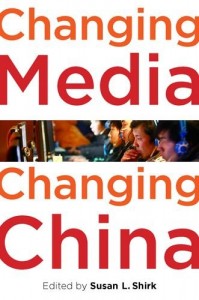 Shirk, S. L. (Ed.). (2011). Changing Media, Changing China. New York: Oxford University Press.
Shirk, S. L. (Ed.). (2011). Changing Media, Changing China. New York: Oxford University Press.
In detailed case studies, the edited anthology describes how the media is reshaping itself from a propaganda mouthpiece into an agent of watchdog journalism, how politicians are reacting to increased scrutiny from the media, and how television, newspapers, magazines, and Web-based news sites navigate the cross-currents between the open marketplace and the CCP censors.
Cartier, C. L (2001). Globalizing South China. Oxford: Blackwell Publishers.
This insightful account demonstrates that capitalism in China has a history and a geography, and combines perspectives from both to demonstrate that regional economic restructuring in South China is far from an economic ‘miracle’s.
About the author: Carolyn Cartier is assistant Professor of Geography at the University of Southern California, Los Angeles.
Sun, W. (2009). Maid in China: media, morality, and the cultural politics of boundaries. London; Routledge.
This is the first systematic, book-length investigation of internal rural migration in post-Mao China focused on the day-to-day production and consumption of popular media. Taking the rural maid in the urban home as its point of departure, the book weaves together three years of engaged ethnographic research in Beijing and Shanghai with critical analyses of a diverse array of popular media, and follows three lines of inquiry: media and cultural production, consumption practices, and everyday politics.
 Curtin, M. (2007). Playing to the World’s Biggest Audience the Globalization of Chinese Film and TV. Berkeley: University of California Press.
Curtin, M. (2007). Playing to the World’s Biggest Audience the Globalization of Chinese Film and TV. Berkeley: University of California Press.
In this provocative analysis of screen industries in China, Hong Kong, Taiwan, and Singapore, Michael Curtin delineates the globalizing pressures and opportunities that since the 1980s have dramatically transformed the terrain of Chinese film and television, including the end of the cold war, the rise of the World Trade Organization, the escalation of democracy movements, and the emergence of an East Asian youth culture. Read more…


